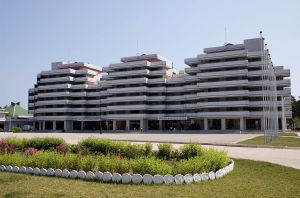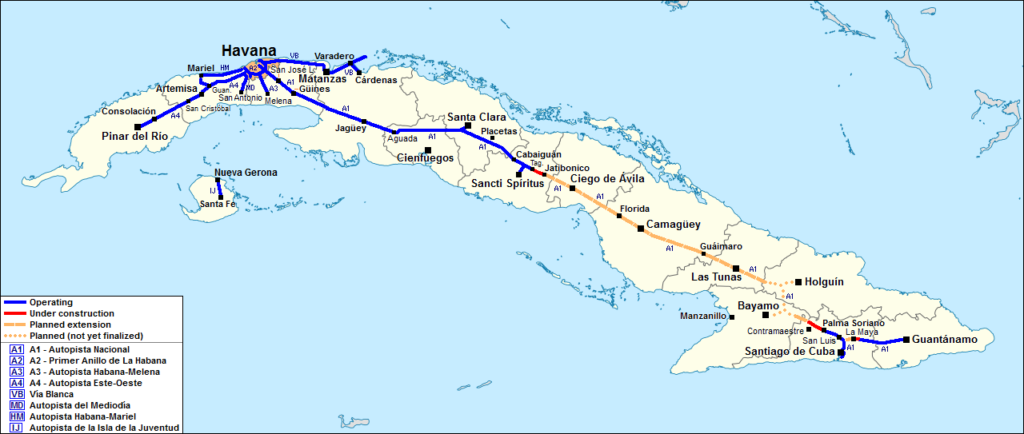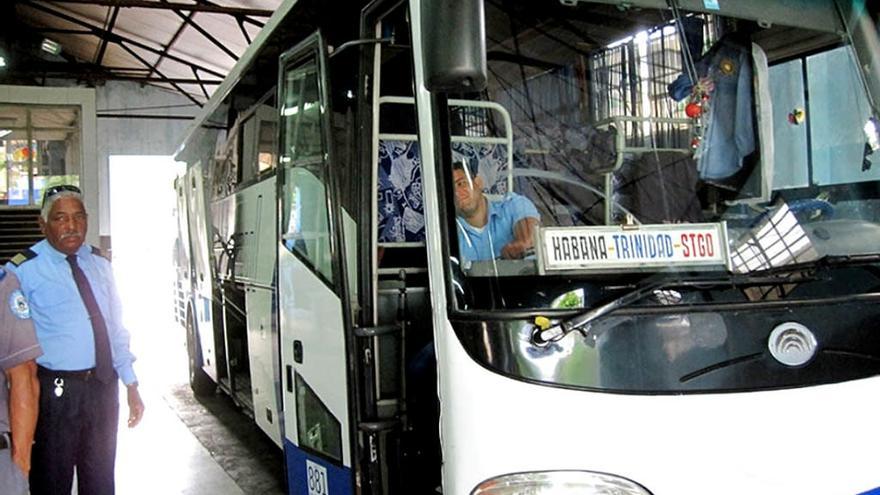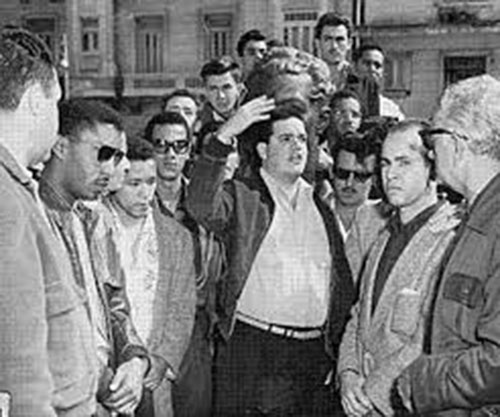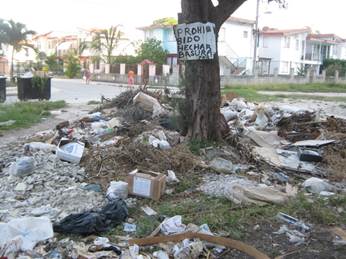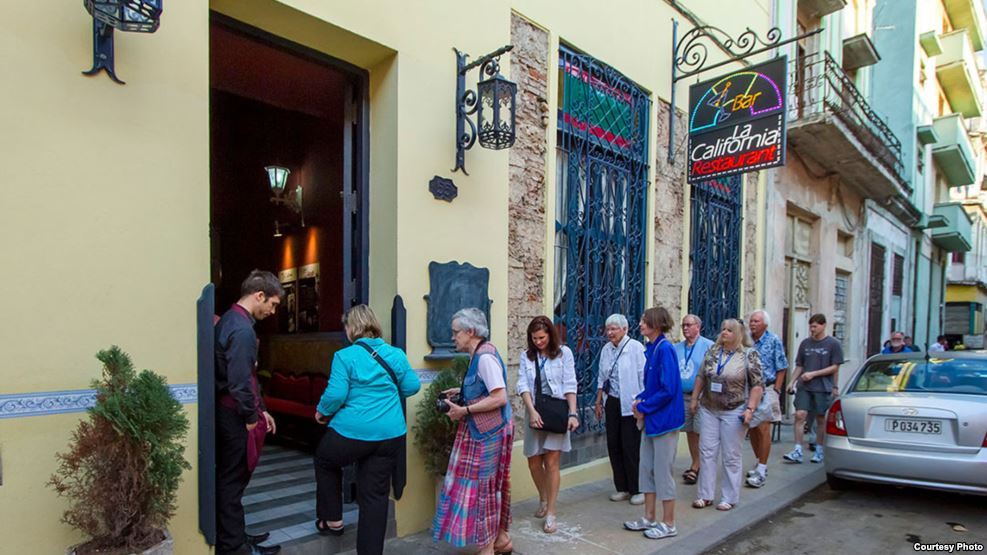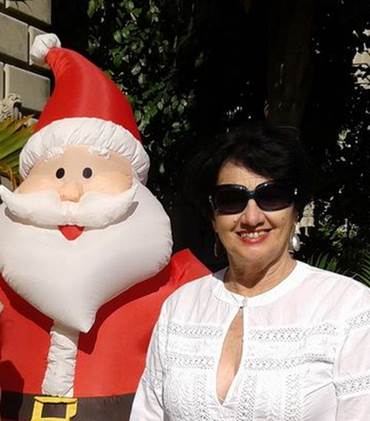Ivan Garcia, 3 February 2017 — It’s raining cats and dogs in Havana and the Weather Institute announces a moderate cold front on the west of the island. Like any weekend, after lunch people gather in front of the TV to watch a Spanish football game, a Hollywood film pirated by the Cuban state, or a soporific Mexican soap opera offered by the semi-clandestine “weekly packet.”
On Sunday, a day of general boredom, many Havanans sleep in or kill the boredom drinking the cheapest rum. But Sheila doesn’t allow herself this “luxury.” She looks at the overcast sky and curses her bad luck. continue reading
“I have an appointment in the afternoon with a Chinese customer who invited me to dinner and later we’ll have a drink. The guy “looks like a flower pot” (has money). The bad weather makes me want to say ’fuck it’,” comments Sheila, a hooker, while looking at her watch.
How do you talk to a Chinese man? “In English of course, throwing in a little Italian and six of seven phrases in Mandarin that I learned on the internet. In the end, I say a hundred dollars a night, or I love you, and it’s not very complicated in any language,” she adds, laughing.
Like Sheila, thousands of Cuban prostitutes learn the basics of foreign languages. In particular English, which in the last ten years has grown spectacularly in Cuba.
English schools, private or state-run, are multiplying in Havana. In the municipality of Diez de Octubre alone, one of the most populated on the island, there are around 60 English schools.
There is English a la carte. For every taste. From classes in state institutions that cost 20 Cuban pesos to sign up, to private air-conditioned schools with the newest methods of teaching children, young people and adults.
In some of them, like Britannia or America, you learn to speak the language of Shakespeare in the British or US version. “Including turns of phrase frequently sued in New York or the Spanglish spoken in Miami,” says Diana, a teacher at the America school.
Enrollment in the best private schools costs between 20 and 30 Cuban convertible pesos (CUC), the entire monthly salary of a professional. And each class is between 10 and 18 CUC.
Increasingly, children between 5 and 12 are registered by their parents. “Mastering English is imperative for the future that is coming our way. In my case, our family is thinking of emigrating. And if my children speak English the way is already paved for them,” says Carlos, father of two children who are studying English.
Technical, intensive or personalized English classes are also offered. Betty, 32, is waiting for a work permit for Canada. “Twice a week I take intensive classes, the teacher teaches me personally and it’s very helpful, I pay 35 CUC a month, but if I go to his house it’s a little cheaper.”
Havana’s marginal fauna, of course, doesn’t want to be left behind. With the increase in visitors and tourists, especially in the capital — a little more than 4 million in 2016 — there is an opportunity for hookers, informal guides, and illegal or clandestine sellers of handicrafts, works of art and tobacco.
Even those who sell cocaine, marijuana or psychotropic drugs need basic english, because “a little Italian or French, sure, but if you don’t speak any foreign language, you’re out of luck in this business,” says a guy who sells melca in the old part of the city.
Let’s call him Josuan, a sturdy guy, not very tall, who considers himself a perfect joker. “I go all the way. I sell tobacco, work as a guide, go to bed with the ladies. The problem, man, is getting some money. And if you have your wits about you and the tourists like you, you get it. But you have to know how to start a conversation in English or some other language. This creates empathy with your customer.”
Learning English is all the rage in Cuba. The military junta that governs the island has recognized it as a priority of the state. In an article on the changes in higher education in Cuba, published in Weekly Progress, the journalist Nery Ferreria wrote, “One of the most disturbing measures for many is the requirement to demonstrate a mastery of English, as an ’independent user’ before graduating from the university.”
And she mentions that Rodolfo Alarcon, in his time, before he was ousted at Minister of Higher Education in July of 2016, said that there had to be a resolution to “the problem that the Cuban professional is not capable of expressing themselves in the universal language of our times.”
In her article, Ferreira includes two comments left on the official Cubadebate website. “Start with English from elementary school and solve the deficit of teachers in this subject and then the mastery of the second language will be a done deal,” said a reader. While another added, “Why ask for what hasn’t been taught all these year. Now we want to demand it without having a base, or worse, that the parents have to pay for private lessons, which are very expensive.”
English is well-received in Cuba, especially now that the regime sighs about doing business with the Yankees. It doesn’t matter if the interlocutor is a caveman Donald Trump-style. “Business if business, man. Whoever the person. If you have the ticket, let the dog dance,” stresses René, who sells Cuban cigars on the black market.
And this is the Cuba of the 21st century, blurring ideology. From Socialism or Death to the death of Fidel Castro to Welcome Yankees as the national slogan.
No one wants to be left behind. Not the state businesses, nor the private ones nor the underworld. Everyone wants to speak English! [in English in the original]
Translated by Jim
